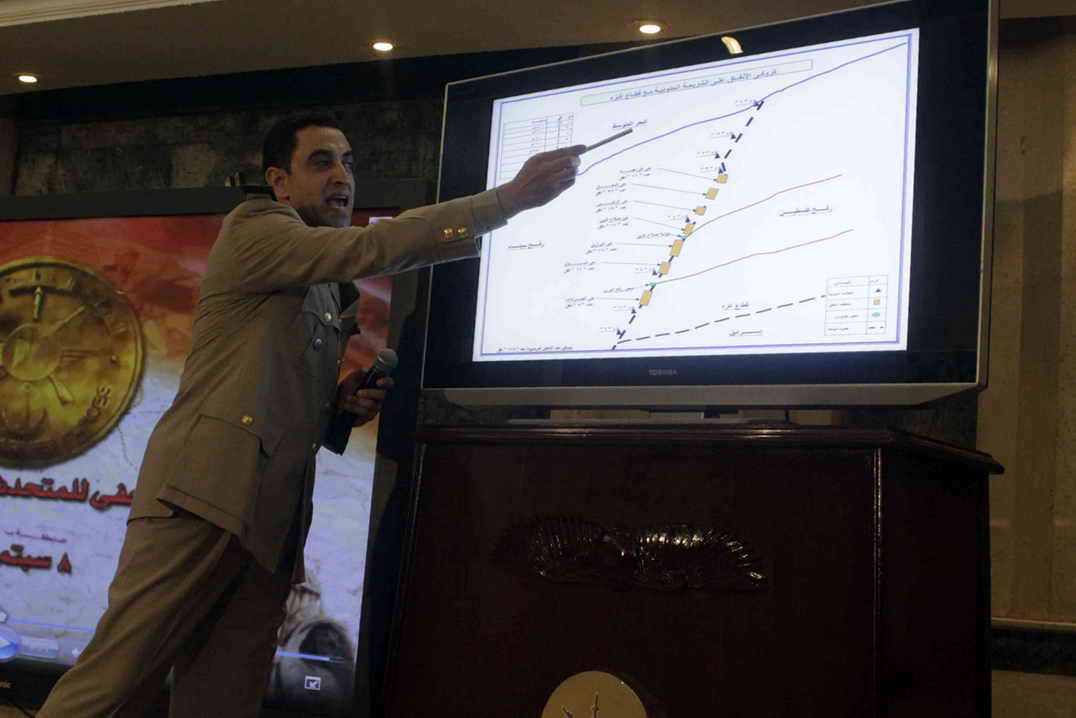Border guards caught 328 people on Wednesday using desert trails in an attempt to infiltrate the Western Egyptian border to enter Libya, state-owned newspaper Al-Ahram reported.
The individuals were apprehended at the border. Five of them were Sudanese, whilst the rest were Egyptians from various governorates.
All 328 have been referred to military prosecution and will remain in custody until they appear before court on charges of being in areas prohibited to civilians, and attempting to illegally emigrate to another country.
Such cases of Egyptians attempting to flee to Libya are common, with 91 apprehended in similar circumstances earlier this week. Last month, a further 95 were arrested for attempting to cross the border.
The efforts to illegally cross the border continue, despite the Egyptian authorities banning citizens from going to Libya, due to the security situation.
Libya serves as a major emigration hub to Europe, where thousands of migrants try to illegally cross the Mediterranean to Italy.
Meanwhile, Egyptian Foreign Minister Sameh Shoukry met Tuesday with head of the European mission to combat human trafficking in the Mediterranean. Migrants’ fleeing from the Libyan coast was the main issue discussed.
Thousands of Egyptians have heeded calls by their government and fled the violence. They are, however, a small proportion of the total Egyptian migrants in the country, who total around one million.
More Egyptians returned following the kidnapping and subsequent beheading of 20 Egyptians by “Islamic State” affiliates in February. The Egyptian military responded to the incident by launching a limited airstrike campaign on militant positions across the border.
Libya has been embroiled in turmoil since the fall and death of former dictator Muammar Gaddafi at the hands of rebel forces.
Several armed tribes and rebel groups refused to lay down their arms following Gaddafi’s demise, and a violent struggle for power ensued.
The fight saw mainly two factions at war. The first side is an Islamist-backed parliament and government set up in the capital Tripoli. This came after the capital was overran by Libya Dawn Islamists last year.
The Islamist-dominated parliament was elected, but later dissolved by Libya’s highest court. The Islamists refused to accept the court’s ruling, despite a new parliament being elected, and continued to convene in Tripoli.
The new elected parliament, recognised by the international community, was forced to the east of the country, and operates out of the city of Tobruk. The cabinet chosen by the Tobruk parliament is headed by Prime Minister Abdullah Al-Thinni.
The crisis intensified when rogue General Khalifa Haftar declared his own war on the Islamists, using military units and militias loyal to him. Haftar is now Al-Thinni’s Minister of Defence.
A new front has recently opened in the war, with “Islamic State” affiliates gaining ground in multiple areas of the country. The radical militants fight against both sides of the already existing conflict.



